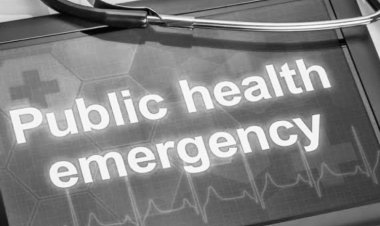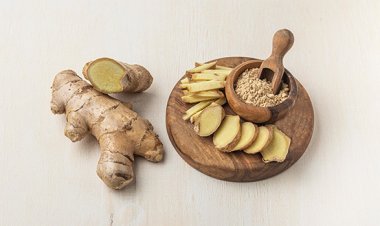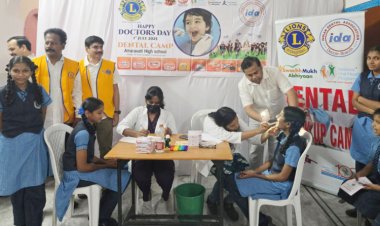Quick Facts about Broccoli

Broccoli is known as the “Crown of Jewel Nutrition” because it is rich in vitamins and minerals. It is an excellent source of vitamin K, vitamin C, chromium and folate. Broccoli is an edible green plant in the cabbage family whose large flowering head is eaten as a vegetable. Broccoli is a very good source of dietary fiber, pantothenic acid, vitamin B6, vitamin E, manganese, phosphorus, choline, vitamin B1, vitamin A (in the form of carotenoids), potassium and copper. Broccoli is also a good source of vitamin B1, magnesium, omega-3 fatty acids, protein, zinc, calcium, iron, niacin and selenium.
.jpg)
Dr. Vinitha Krishnan, Nutritionist, Fortis Malar Hospital considers Broccoli a tasty vegetable which is rich in dozens of nutrients and has loads of health benefits. She shares interesting facts about Broccoli below:
• Broccoli reduces the risk of many life style related disease like obesity, diabetes, hypertension and overall mortality.
• It promotes healthy complexion, and hair.
• Fights cancer: Folate in broccoli found to lower risk of breast cancer in women. Protecting effects of folate is also reported in colon, stomach, pancreatic and cervical cancer.
• Improves bone health:
1 cup of chopped broccoli provides 92mcg of Vitamin K well over 100% of RDA. Adequate Vitamin K improves bone health by improving calcium absorption and reducing urinary excretion of calcium.
Broccoli contributes to the daily need for calcium providing 43 mg in 1 cup.
• Looking Younger:
Antioxidant, Vitamin K when eaten in natural form can help fight skin damage caused by sun and pollution, reduces wrinkles and improves the overall skin texture.
Broccoli provides 81 mg of vitamin C. Vitamin C plays an important role in the formation of collagen the main support system for skin.
Vitamin A and Vitamin E are crucial for healthy looking skin, both of which broccoli provides.
• Improves digestion and natural detoxification.
It has natural fiber and can prevent constipation and maintain a healthy digestion tract and lower the risk of colon cancer.
• Reduces the impact of allergy related substances and inflammation
Helps people with arthritis as it has omega -3- fatty acids
• Protects the eyes
It has anti oxidants like carotenoids, lutin, zeataxin, zeaxanthin and B-carotene Contains Vitamin A, Vitamin C, Vitamin B all of which prevents eyes against muscular degeneration, cataract and repairs damage against harmful radiation.
Rich in magnesium, zinc and phosphorous. Helpful in children, elderly and lactating mothers.
Nutrient Content
• 1cup contain as per USDA National nutrient data base, 1 cup of broccoli contains. 31 Kcal, 0gm fat, 6 gm CHO(2gm sugar, 2gm fiber) and 3 gm protein.
• It provides the daily need for Vitamin C, Vitamin K and also a good source of potassium, Vitamin A and folate.
• Broccoli leads among the top 20 in regards to the Aggregate Nutrient Density Index.
How to incorporate in diet
• Store in refrigerator. Do not store in room temperature.
• Use it in soups and as steamed vegetables.
Health risk of consuming broccoli
• Avoided in people taking blood thinners
Book Appointment: Dr. Vinitha Krishnan, Nutritionist, Fortis Malar Hospital

 Disclaimer: Welthi.com does not guarantee any specific results as a result of the procedures mentioned here, and the results may vary from person to person.
Disclaimer: Welthi.com does not guarantee any specific results as a result of the procedures mentioned here, and the results may vary from person to person.









